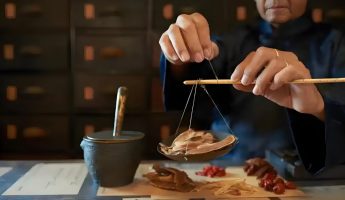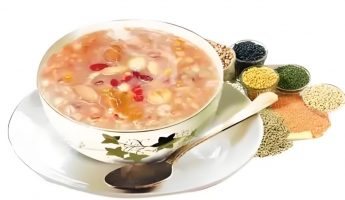Medicinal tea therapy, an ancient crystallization of wisdom, cleverly combines the essence of tea culture with the profoundness of traditional Chinese medicine. By processing specific tea, Chinese medicine, or medicinal food ingredients into tea preparations and other forms of therapeutic beverages, it has opened up a unique and effective way to prevent and treat diseases such as hypertension.
In the long history of Chinese medicine, medicinal tea therapy has always held an important position. Tea, an indispensable beverage in daily life, also has significant medicinal value that cannot be ignored. When tea is combined with traditional Chinese medicine that has blood pressure lowering effects, it forms a medicinal tea that can clear heat and detoxify, invigorate the mind, and effectively lower blood pressure. This therapy is deeply loved and praised by people for its simplicity, practicality, and significant effectiveness.
Production and drinking methods
The process of making medicinal tea is not complicated. Simply place the required Chinese herbal medicine slices in a teacup or hot water bottle, pour boiling water into it, gently stir and seal, and let it sit for 15 to 30 minutes until it is fully soaked and flavorful before drinking. For drugs that need to be decocted, a clay pot can be used for decoction. The medicine obtained from multiple decoctions can be combined and filtered, and then placed in a thermos bottle for drinking at any time.
Recommended medicinal teas for different types of hypertension
Liver fire inflammation type hypertension
This type of patient often presents with symptoms such as dizziness, headache, red face and eyes. For this condition, the following medicinal teas are recommended:
Prunella vulgaris blood pressure reducing tea: composed of Prunella vulgaris and Plantago asiatica, boiled in water as a tea drink, taken twice a day for three consecutive courses of treatment can be effective.
Robe pressure reducing tea: made by steaming, frying and kneading tender leaves of Robe, 5 to 10 grams per day, brewed with boiling water as a substitute for tea.
Chrysanthemum tea and withered chrysanthemum tea: Mix chrysanthemums or summer dry grass with chrysanthemums separately, and brew with boiling water as a substitute for tea. Long term consumption has better effects.
Yin deficiency and Yang hyperactivity type hypertension
These patients often have symptoms such as dizziness, vertigo, tinnitus, and blurred vision. Recommended medicinal teas include:
Mulberry Chrysanthemum and Cassia Seed Tea: Soak 5 grams of mulberry leaves, chrysanthemums, and cassia seeds in boiling water as a substitute tea drink. Regular consumption is effective.
Lotus Leaf Chrysanthemum Tea and Chrysanthemum Bright Tea: Mix lotus leaves with chrysanthemum, chrysanthemum with cassia seed, and Pu erh tea separately, soak in hot water as a tea substitute, and take for a long time to show therapeutic effects.
Helong tea: a combination of lotus leaves and Longjing tea, soaked in hot water as a substitute for tea, also needs to be taken for a long time.
Phlegm obstruction type hypertension
This type of patient often experiences symptoms such as dizziness, vertigo, and chest tightness. The recommended medicinal teas are:
Orange peel tea and Tianma orange peel tea: Mix dried orange peel with green tea, Tianma with orange peel, and brew with plain water as a substitute for tea. It is best to take them frequently.
Hawthorn tea and hawthorn orange peel tea: Hawthorn has the effect of digestion and accumulation. When combined with orange peel, it is brewed with hot water as a tea substitute and is also suitable for frequent consumption by patients of this type.
matters needing attention
Moderate consumption: Elderly patients with physical weakness and chronic diseases should drink in small amounts for a long time, avoiding drinking in large quantities at once.
Instant brewing and drinking: Medicinal tea should be brewed and consumed on the same day, and needs to be remade the next day.
Drinking time: The best drinking time is in the morning, generally not exceeding 5 pm. Drinking tea before bedtime should be avoided to avoid affecting sleep.
Comprehensive treatment: While using medicinal tea therapy, other therapies can be combined for comprehensive treatment to improve the efficacy.



